
Can you imagine a world where death is no longer inevitable and where people could live forever?
Well imagining that kind of world is not easy as it seems. Many people would think that the immortal world would be perfect.
But most likely it would be something far far away from perfect.
Namely, with immortality, humanity could face a series of unimaginable consequences, reshaping society in ways we can barely comprehend.
In this article, first, we’ll start with the most obvious consequences and then we’ll delve into weirder and weirder ones finishing with some really strange potential consequences of people living forever.
So, we propose first to look at the table of contents below and then decide how deep (or weird) you’d like to go…
Let’s begin.
Overcrowded Earth
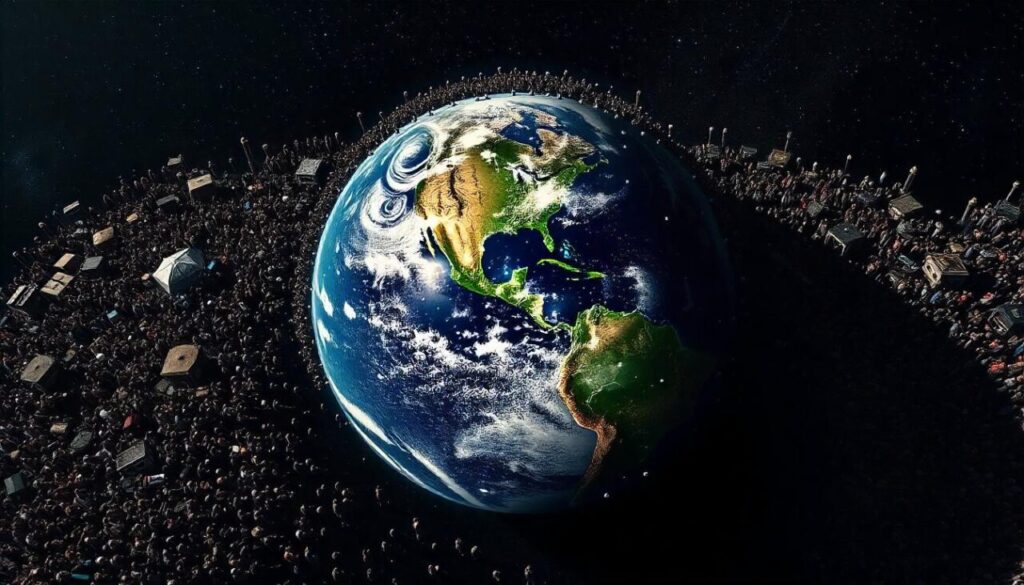
If people stopped dying, the Earth’s population would skyrocket. Overcrowding would become a severe issue, leading to extreme urbanization as more people crammed into cities.
This huge urban mass could result in the loss of natural habitats, driving countless species to extinction.
With finite space and resources, competition for essentials like food, water, and shelter would intensify, creating additional conflicts and deepening inequalities.
Interesting fact: The world population is projected to reach 9.7 billion by 2050. Imagine the strain if none of those people ever left.
Endless Work: The Death of Retirement

In a world without death, the concept of retirement might disappear altogether. People would be expected to work indefinitely, leading to extreme burnout and disillusionment.
The idea of spending eternity at the office could inspire new forms of protest or rebellion, as workers seek ways to escape an endless grind and rat race.
With no endpoint in sight, the motivation to work could completely diminish, making traditional career paths absolutely obsolete.
Interesting fact: The average retirement age in the U.S. is currently 64. In an immortal society, there might be no such thing as retirement.
Infinite Accumulation of Wealth

In an immortal society, a few individuals could accumulate enormous wealth and power over centuries, creating a hyper-elite class.
These individuals, with lifetimes to accumulate resources, could dominate all aspects of life, controlling economies, politics, and culture (not that this is not happening already…)
The gap between the rich and poor could become insurmountable, leading to a society where social mobility is impossible.
Interesting fact: The wealthiest 1% of the world’s population owns nearly half of the world’s wealth. In an immortal world, this concentration of wealth could become even more extreme.
Mental Overload
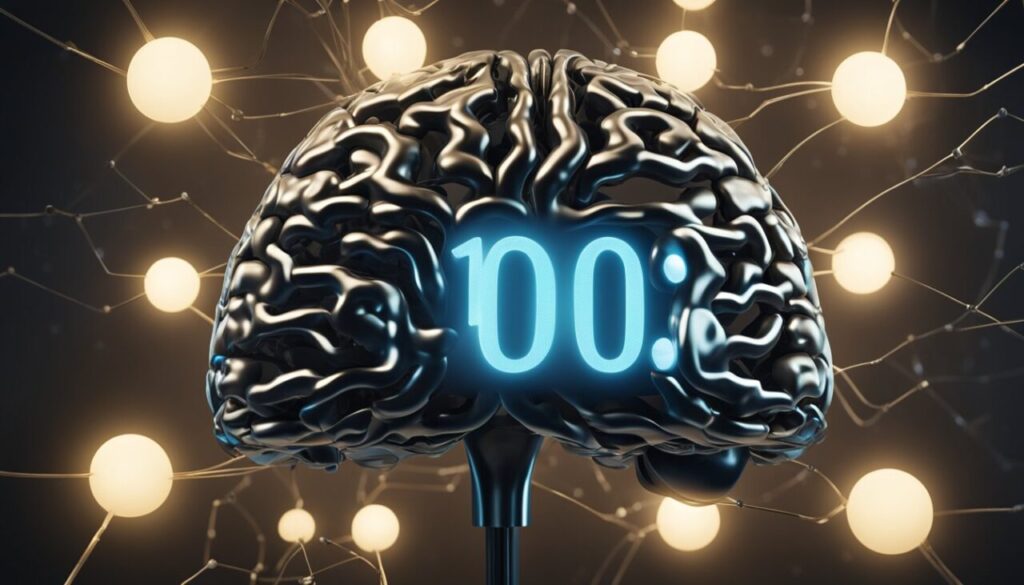
With centuries of memories stored in their minds, people would certanly face extreme mental overload.
Billions of people would suffer from big mental health issues. Memory overload could cause individuals to lose track of their personal history, blurring the lines between past and present, reality and fiction.
Interesting fact: Human memory is frail, and even now, we struggle to remember all our life events accurately. Imagine trying to recall memories from a thousand years ago.
Resource Depletion

As people live forever, the demand for resources would obviously soar. Natural resources, already under pressure, could be completely exhausted as consumption outpaces the planet’s ability to regenerate.
The environmental destruction that follows could lead to irreversible damage for whole planet.
Interesting fact: Humanity is currently using natural resources at a rate 1.7 times faster than the Earth can regenerate. In a world of immortals, this rate could increase dramatically.
End of Birth

To control population growth, procreation might be heavily restricted or banned entirely. Heck, perhaps everyone would need to undergo some form of genital mutilation to make procreation literally impossible
This could lead to a society without new generations, where the young are a rarity or non-existent.
Without the fresh perspectives and energy that new generations bring, society could become increasingly conservative and resistant to change, leading to a world where nothing new is created.
Interesting fact: The global birth rate is currently declining, with many countries facing population stagnation or decline. In an immortal world, birth rates might drop to zero.
Economic Collapse

Traditional economic systems, based on retirement, inheritance, and lifecycle consumption, could collapse in a world of immortals.
With no one retiring or passing on their wealth, economic models would need to be completely rethought.
This could lead to a new economic order, where wealth distribution and resource allocation are managed in ways we can’t currently imagine.
Interesting fact: The global economy is deeply intertwined with the concepts of birth, death, inheritance and consumption. Removing death from the equation would require a fundamental rethinking of economic principles.
Identity Crisis
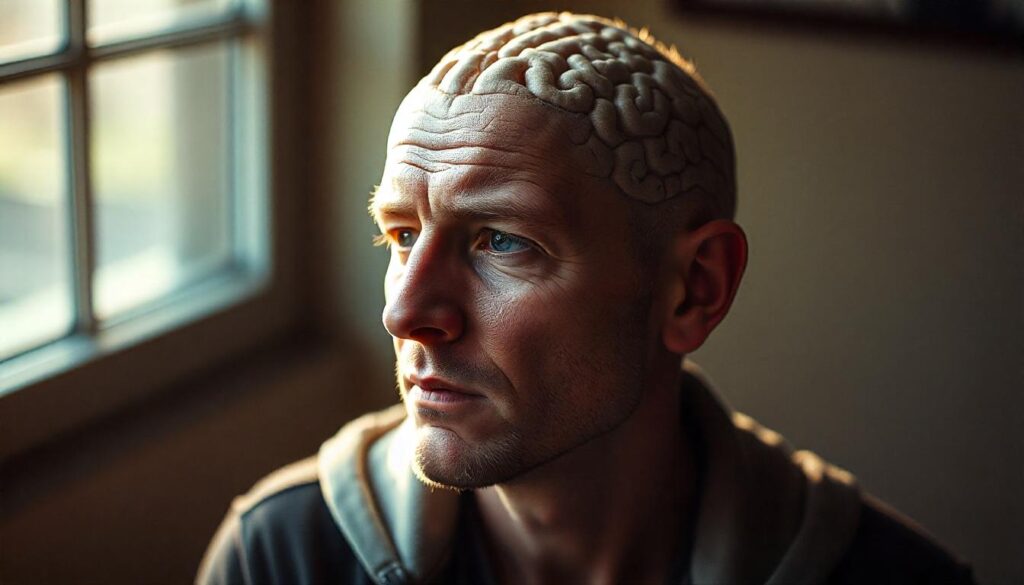
Living forever could lead to severe identity crises. With today’s average lifetime of 75ish years, many people are having many identity crises during their lives.
Imagine what would happen for eternity in someone’s mind.
The person you were a thousand years ago could feel like a stranger, leading to existential crises and a loss of purpose. Without the natural endpoint of death, people might find it increasingly difficult to define who they are and what they stand for.
Interesting fact: Psychological studies suggest that people change significantly every seven to ten years. Imagine the identity shifts that could occur over centuries.
Perpetual Rulers

Dictators or authoritarian leaders could potentially rule forever in an immortal society. Without death to remove them from power, these leaders could create regimes that last indefinitely, suppressing any possibility of rebellion or political change.
The idea of eternal oppression could become a reality, with societies trapped under the rule of complete sociopaths.
Well, to be frank, it is not that different today, anyway.
Interesting fact: The Roman Empire lasted over 1,000 years, but even it eventually fell. In an immortal world, such regimes might last forever.
Eventual Cosmic Boredom

After witnessing all possible human events, people might experience extreme boredom or existential ennui.
The excitement of new experiences could fade, leading individuals to seek increasingly bizarre or dangerous activities just to feel alive.
This cosmic boredom could drive humanity to the edge, pushing people to take risks or engage in behavior that they wouldn’t consider in a mortal life.
Interesting fact: Studies have shown that boredom can lead to risky behavior as people seek stimulation. In an immortal world, this drive for novelty could become even more intense.
Psychological Mutations

To cope with endless life, the human psyche might undergo unforeseen changes. New forms of consciousness or mental states could develop, leading to psychological mutations that fundamentally alter the way people think and feel.
These changes could result in a society where the human experience is radically different from what it is today.
Interesting fact: Neuroplasticity refers to the brain's ability to adapt and change over time. In an immortal life, this ability could lead to entirely new ways of thinking.
Fear of Catastrophic Injury

Without the release of death, the fear of catastrophic injury could become more terrifying than ever.
People might live in constant fear of accidents or events that could leave them permanently incapacitated.
This fear could lead to extreme caution in everyday life or, conversely, a reckless disregard for safety as a coping mechanism.
Interesting Fact: The fear of injury or disability is already a significant concern for many, particularly in extreme sports or dangerous professions. In an immortal world, this fear could dominate daily life.
End of Philosophy and Religion

The existential questions that drive philosophy and religion might lose relevance in an immortal society.
With the mysteries of life and death solved, people might turn away from these disciplines, leading to their decline or transformation into new belief systems.
The spiritual and philosophical pursuits that have shaped human history could fade into obscurity, replaced by a focus on the here and now.
Interesting fact: Many of the world’s greatest philosophical and religious ideas were born from the contemplation of mortality. In a world without death, these ideas might lose their significance.
Loss of Urgency

Well, this is an obvious one. Without the ticking clock of mortality, the urgency to achieve goals could disappear. People might procrastinate endlessly, knowing they have all the time in the world to accomplish their dreams.
This lack of urgency could lead to a society where motivation to do anything is completely lost
Interesting fact: Deadlines and immortality are a powerful motivator that drives productivity and innovation. Without them, people might lose the drive to do anything,
Laws of Nature Questioned

The understanding of life and death as natural processes could be fundamentally challenged in a world of immortals.
This could lead to new scientific, and philosophical debates, as humanity struggles with the implications of eternal life.
The laws of nature might be completely re-examined, leading to new but perhaps strange discoveries.
Interesting fact: The quest to understand the laws of nature has driven most of scientific progress for centuries.
Social Darwinism

Only those who can mentally and physically adapt to eternal life might thrive in an immortal society. This could lead to a new form of social Darwinism, where the “fittest” survive and the weak are left behind doing nothing – basically vegetating.
The ability to cope with the challenges of endless life could become the defining factor in determining who succeeds and who fails.
Interesting fact: Social Darwinism was a controversial idea in the 19th and 20th centuries, often used to justify inequality. In an immortal world, it could become a harsh reality.
Interstellar Conflict
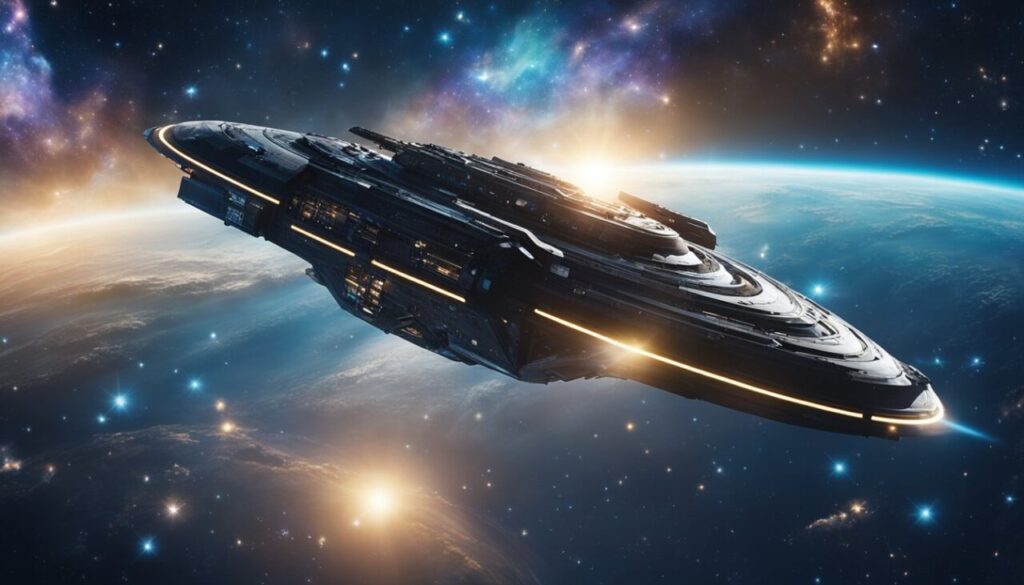
As Earth becomes overpopulated and resources decrease, conflicts might spill over into space. Yes it sounds weird and strange but just imagine what could happen if everyone is (was) immortal.
Humanity, in search of new territories and resources, could engage in wars over habitable planets or asteroids.
The dream of interstellar colonization could turn into a nightmare of endless conflict, as nations and corporations vie for control of the stars.
Interesting fact: The idea of space colonization has been a big interest for humanity for decades. In an immortal world, it might become a necessity rather than a dream.
Spiritual Nihilism

The concept of eternity could lead some to spiritual nihilism, a belief that nothing truly matters in the grand scheme of infinite existence.
With no end in sight, the search for meaning might become futile, leading to widespread disillusionment and a sense of purposelessness.
This spiritual void could have huge effects on individuals and society as a whole.
Interesting fact: Nihilism, the belief in the meaninglessness of life, has been a recurring theme in philosophy and literature. In an immortal society, it could become a dominant worldview.
Time Travel Paradoxes
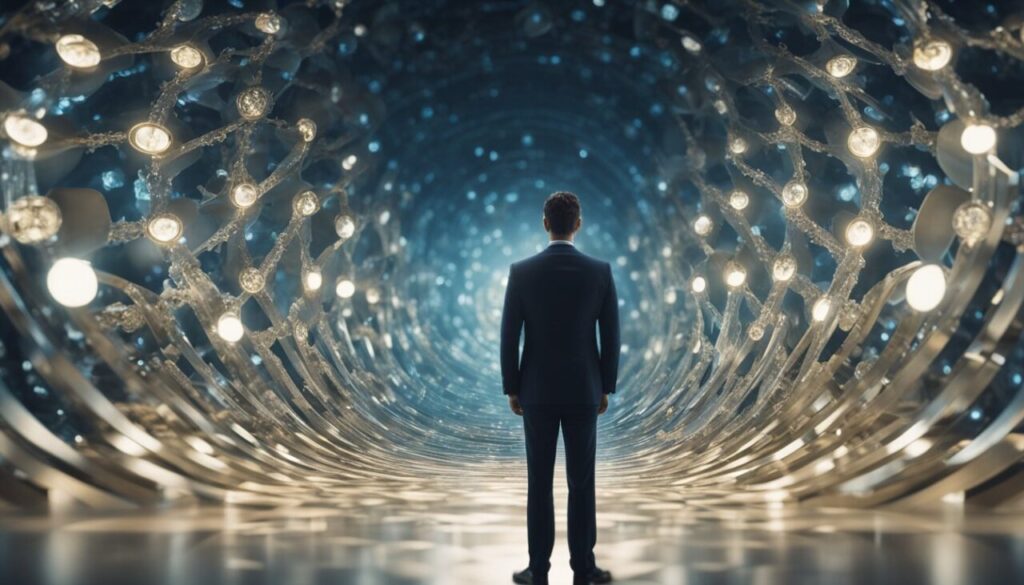
Immortals might become obsessed with finding ways to travel through time, leading to paradoxes where they meet or interfere with their past or future selves.
These paradoxes could disentangle the fabric of reality, creating alternate timelines or even erasing entire events from history.
The pursuit of time travel could become a dangerous game with unpredictable consequences.
Interesting fact: Time travel has been a popular concept in science fiction, but its real-world implications are still completely theoretical. In an immortal society, it could become a reality with huge risks.
Endless Cloning: A World of Infinite Selves

People could clone themselves indefinitely to explore different life paths, creating a world filled with alternate versions of the same individuals.
This could become very weird very quick.
Each clone could have its own unique experiences and personalities, leading to a society where identity becomes fluid and fragmented.
The proliferation of clones could also raise questions about the nature of the self.
Basically people could completely lose it. The brain – that is.
Interesting fact: Cloning technology is still in its infancy, but the possibility of human cloning has already crated intense debates.
Mind-Body Dissociation
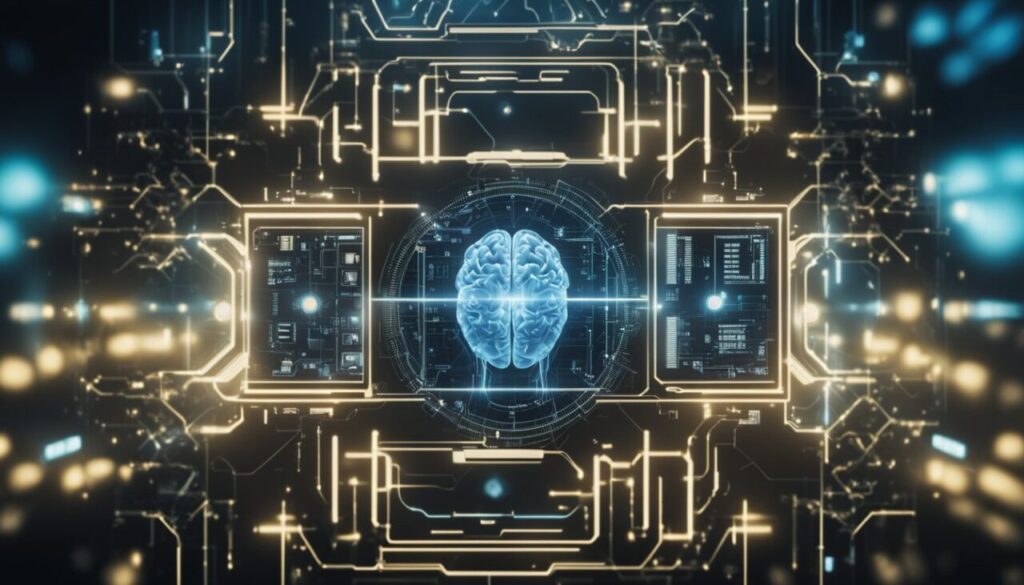
People might experiment with separating their consciousness from their physical body, leading to a society where disembodied minds inhabit virtual or artificial realities.
This mind-body dissociation could blur the line between the physical and digital worlds, creating a new form of existence where the body becomes irrelevant, and the mind is free to explore endless virtual landscapes.
Interesting fact: Virtual reality technology has advanced rapidly in recent years, offering immersive experiences that blur the line between reality and fantasy. In an immortal world, these experiences could become the norm.
Extreme Body Modification
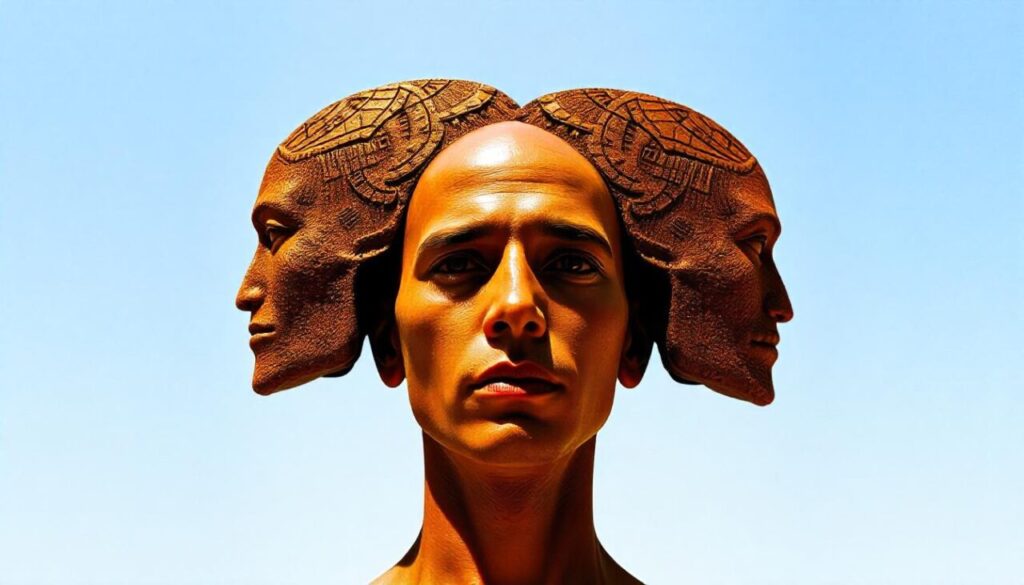
With infinite time, individuals might engage in bizarre and extreme body modifications, evolving into entirely new species or forms of life.
These modifications could blur the line between human and non-human, leading to a society where the definition of humanity becomes increasingly fluid and ambiguous.
In fact, people are already doing these extreme modifications. Imagine what would happen if they had centuries to live.
Interesting fact: Body modification has been a part of human culture for thousands of years, from tattoos and piercings to more extreme practices. In an immortal society, the possibilities for modification would be limitless.
Eternal Hibernation: Skipping Through Time

Some might choose to go into long periods of hibernation, waking up in the distant future to see how the world has changed. Something like vampires from movies do.
This practice could create a society where people are constantly reappearing after centuries or millennia, leading to a world where the past and future coexist in strange and unpredictable ways.
Interesting fact: Hibernation is a natural process for many animals, allowing them to survive harsh conditions. In an immortal world, it could become a way for humans to navigate the endless passage of time.
Collective Hive Mind
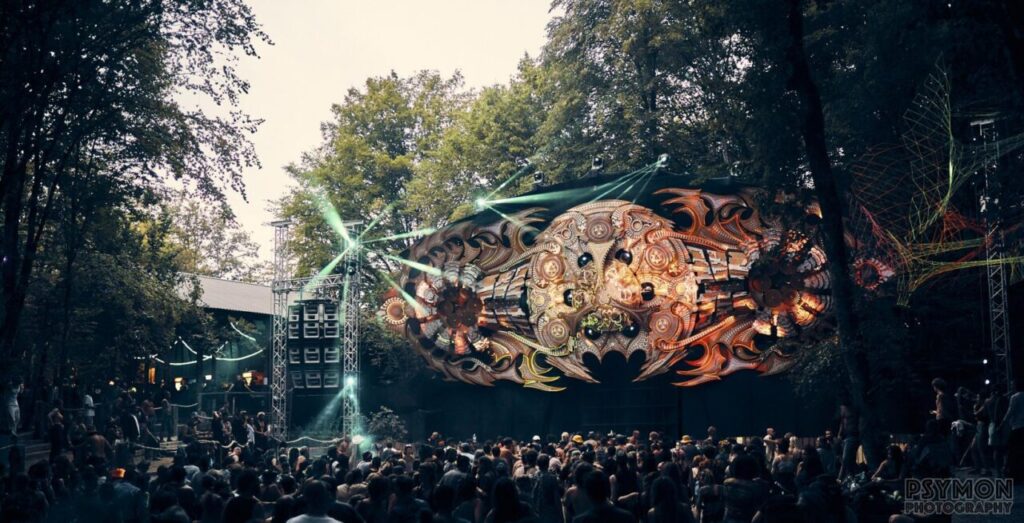
Now, this one is weird.
Over time, people might merge their consciousness into a collective hive mind to avoid loneliness or solve complex problems.
This could lead to the end of individual thought and the birth of a single, omniscient entity that governs society.
The concept of personal identity could disappear, replaced by a collective consciousness that transcends individual existence.
Interesting fact: The idea of a hive mind has been explored in science fiction, often as a cautionary tale about the loss of individuality. In an immortal society, it could become a reality with huge implications.
Eternal Dream Worlds
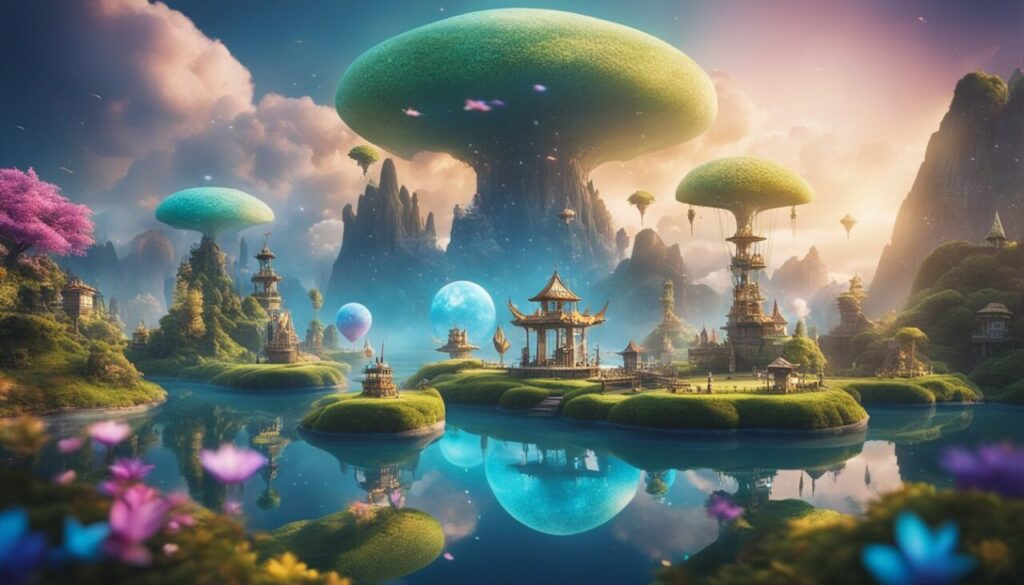
Immortals could spend centuries inside artificially induced dream worlds, leading to the question of what is real and what is a dream.
As people lose themselves in these dreamscapes, the distinction between reality and fantasy could become irrelevant, creating a society where the boundaries of existence are constantly shifting.
Interesting fact: Lucid dreaming, where the dreamer is aware they are dreaming, is a phenomenon that has fascinated people for centuries. In an immortal world, the line between lucid dreaming and reality could blur beyond recognition.
Cosmic Deity Emergence: The Birth of Living Gods
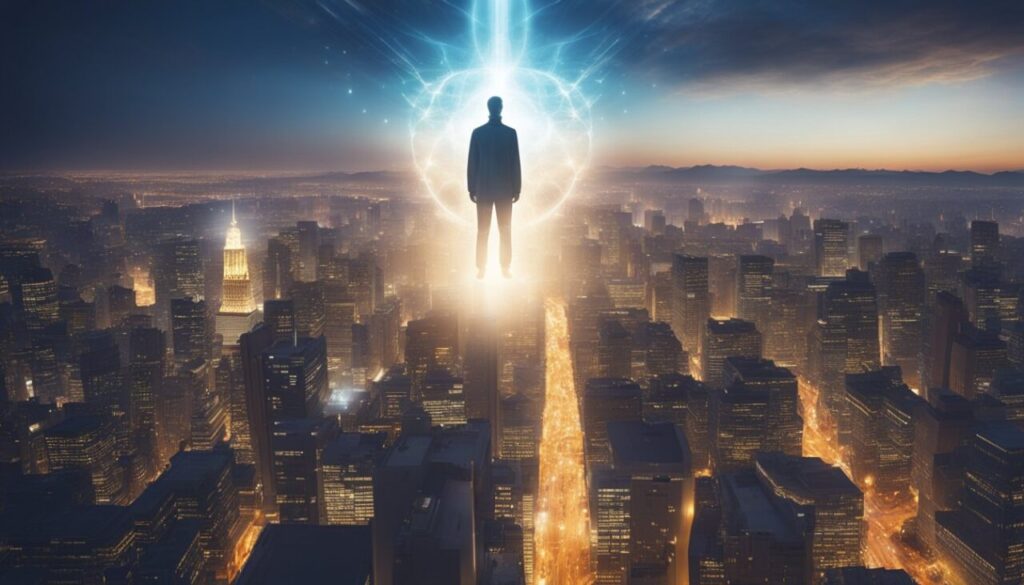
After surviving for eons, some immortals might be worshiped as living gods, gaining followers and possibly even reshaping reality or the cosmos according to their whims.
These cosmic deities could wield unimaginable power, influencing the course of history and the fate of civilizations.
Interesting fact: Throughout history, many cultures have worshiped deities or figures believed to possess eternal life. In an immortal society, these myths could become reality, with living gods walking among us.
Endless Identity Reboots

People might periodically erase their memories and start new lives with different identities, leading to a society where no one knows who they really are or how many lives they’ve lived.
This cycle of forgetting and rebirth could create a world where history is constantly being rewritten, and the concept of personal identity becomes meaningless.
Interesting fact: The idea of reincarnation, or the belief in rebirth after death, has been a central theme in many religions and philosophies. In an immortal society, this concept could take on a new, literal meaning.
Reality Bending

Over millennia, some immortals might develop the ability to bend or manipulate reality itself. This could lead to the creation of pocket universes or alternate dimensions, where people can escape the monotony of eternal life.
Reality bending could become a way for immortals to explore new possibilities and experiences, pushing the boundaries of what it means to exist.
Interesting fact: The concept of reality bending has been explored in various mythologies and fictional works. In an immortal world, it could become a concrete ability, with huge implications for the nature of existence.
Intergalactic Colonization by Brain Uploading
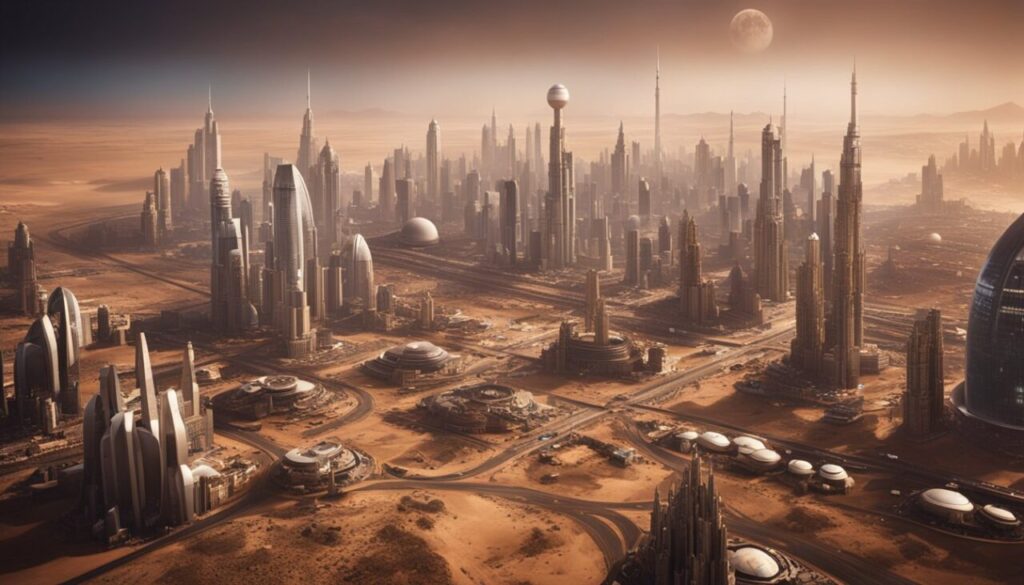
Instead of physically traveling, people might upload their consciousness to probes or digital entities and send them to colonize distant planets.
This could result in civilizations populated entirely by uploaded minds, exploring the galaxy without ever leaving Earth.
Intergalactic colonization by brain uploading could become the ultimate form of exploration, allowing humanity to spread across the stars without the limitations of physical bodies.
Interesting fact: The idea of uploading consciousness to explore the universe has been a popular theme in science fiction. In an immortal society, it could become a reality, opening up new frontiers for humanity.
Self-Imposed Extinction: The Final Reset

In an attempt to find meaning or escape the burdens of immortality, a group of people might initiate a self-imposed extinction event.
This could be an attempt to reset humanity by wiping out their eternal existence, leading to the ultimate paradox: the desire for death in a world where death no longer exists.
Interesting fact: The concept of extinction, whether of a species or an entire civilization, has been a source of both fear and fascination. In an immortal society, the idea of self-imposed extinction could become the ultimate existential crisis.



























